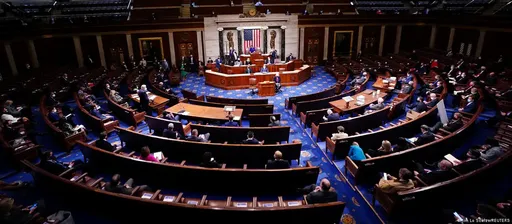British Muslims have seen their status reduced to "second-class" citizens, a new report by a think tank says.
The Institute of Race Relations (IRR) released a report on Sunday titled "Citizenship: from right to privilege" in response to the recent expansion of the contentious powers in the Nationality and Borders Act that permit citizenship to be revoked from a person without notice.
The new law, called clause 9, was added to the bill in April allowing British nationals to be stripped off their citizenship without notice.
The clause means that a British citizen who is abroad and is deprived of citizenship might not know about it until "they try to come home and are refused boarding or they need help from the British Embassy because their passport, money etc have been lost or stolen", the report said.
Those potentially affected by the clause includes any British citizen, whether born British, registered or naturalised, who has another citizenship, any naturalised British citizen with access to another citizenship.
According to the New Statesman, up to six million citizens have or have access to a second citizenship.
Previously, British nationals whose citizenship was revoked were required to be notified by letter.
Those stripped of citizenship have a right to challenge the decision through an appeals process, and critics say that removing the need to notify somebody prevents them from exercising that right.
Government officials say the change would affect only a small handful of people.
The clause "brought home to a wider public how precarious and fragile British citizenship is for Black and Muslim citizens", the report added.
"The message sent by the legislation on deprivation of citizenship since 2002 and its implementation largely against British Muslims of South Asian heritage is that, despite their passports, these people are not and can never be 'true' citizens, in the same way that 'natives' are," Frances Webber, the vice-chair of the IRR and the report's author said.
"While a 'native' British citizen, who has access to no other citizenship, can commit the most heinous crimes without jeopardising his right to remain British, none of the estimated six million British citizens with access to another citizenship can feel confident in the perpetual nature of their citizenship."
Before 2003, no removal of citizenship had been authorised by the British government for 30 years, the report points out, but there has been at least 217 removals of citizenship since then, with 104 removals in 2017.
The Nationality and Borders Bill came under harsh condemnation, before becoming a law, from human rights organisations, the legal community, and the UK parliament's own Joint Committee on Human Rights.
The British government's use of citizenship-stripping powers was likely discriminatory and illegal because of its disproportionate impact on Muslim and immigrant populations, according to UN experts, who also criticised the measure earlier this year.























